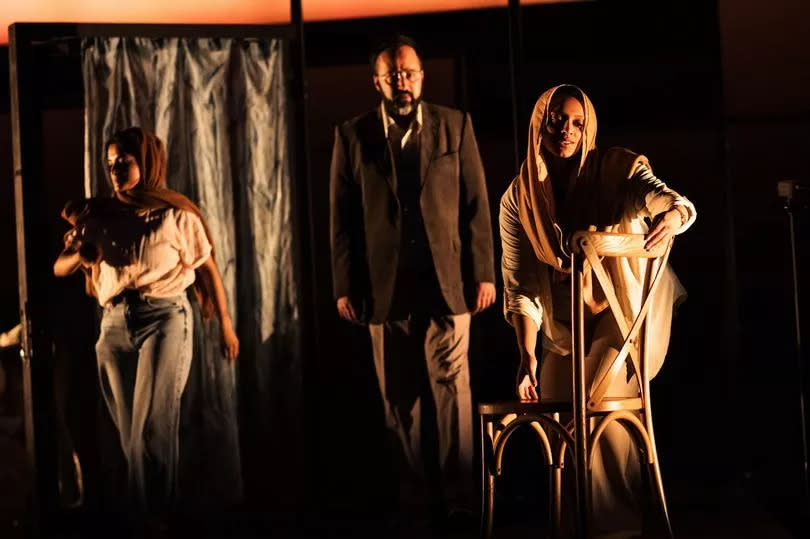I visited Birmingham city centre to learn more about India's partition and was left in tears

I grew up listening to partition stories, I've always heard of the trauma that my people endured when those lines were drawn back in 1947. The horror that people faced, how women were treated and the countless number of lives we lost. Every time I used to fly back to Punjab I would ask the elderly in my village to tell me more about what happened back then and how life used to be before Punjab was split into two. I've always been curious, always wanted to learn. So, when I was asked if I wanted to go watch Silence it was an immediate yes from me.
The play is adapted from Kavita Puri’s acclaimed book Partition Voices: Untold British Stories and it is at The Birmingham Rep from April 24 to April 27. Before watching Silence, I wondered if it would do justice to the stories of the millions of people that in 1947, during the British Raj, were displaced, faced violence or were killed due to religious violence. The answer is yes. The writers, cast members and production team could not have done a better job in portraying the testimonies of the people who lived through those years.
I must admit I struggled to hold back my tears throughout the play, especially when the tale of a young Sikh boy and his Muslim friend Saleem was told. I connected it to the countless other stories I grew up listening to, how they all used to play together drawing lines on the ground when playing, not knowing that Mr Radcliffe was busy drawing his own lines somewhere else.
Read more: TGI Fridays diners thrilled as 'secret code' sees restaurant bill slashed - but only for this week
Radcliffe was given the task of drawing the borders for the new nations of Pakistan and India in a way that would leave as many Sikhs and Hindus in India and Muslims in Pakistan as possible. The Sikh boy's story touched me and my eyes could not stop streaming, he spoke about how he grew up with his friend Saleem, how they used to celebrate Eid and Diwali together and how it all changed after partition news broke and they were separated.
How those borders affected people was portrayed beautifully. The play told tales of Sikh people, how it affected Hindus, Muslims and Sindhis. It showed how hard it was for South Asian people living in Britain, especially after 9/11, how some people had to lie about their origins, had to change their names because they'd be called "Paki" and face abuse, how they didn't feel at home in India/ Pakistan and didn't feel at home in Britain either.
There are so many untold stories, and our grandparents have always struggled to share their trauma and chose to remain silent instead and kept that pain inside them. That is why it is important to have plays like Silence, to raise awareness and be that voice for them. Silence speaks about the violence that women faced during that time too and how their voice was not heard either, how they were treated by men, raped and kidnapped. In fact, it is estimated that during the partition between 75,000 and 100,000 women were kidnapped and raped.
SIGN UP: Receive the latest shopping and what's on news by signing up to the City Life newsletter here
Silence is a rollercoaster of emotions and I am sure I was not the only person who felt like that, I could hear the audience gasping, reacting to the stories and thoroughly enjoying the play - which is from an original co-production by Tara Theatre and Donmar Warehouse - in association with Queen’s Theatre Hornchurch.
One line that stayed with me is that they were all "the same people, with the same food, same culture but just with a different religion" which brought everyone against each other.
If you want to learn more about why British India was divided you have to watch the play, which is at The Birmingham Rep till April 27. For tickets visit here.

 Yahoo News
Yahoo News 
